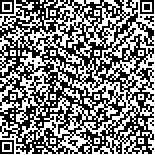| 引用本文: |
任玲, 周竞颖, 来奕恬, 屈艺卓, 李南, 杨茜芸, 张国山.基于伏邪理论探讨哮喘的病因病机与针灸治疗策略[J].湖南中医药大学学报,2024,44(7):1286-1291[点击复制] |
|
| |
|
|
| 本文已被:浏览 2009次 下载 1169次 |
| 基于伏邪理论探讨哮喘的病因病机与针灸治疗策略 |
| 任玲,周竞颖,来奕恬,屈艺卓,李南,杨茜芸,张国山 |
| (湖南中医药大学针灸推拿与康复学院, 湖南 长沙 410208) |
| 摘要: |
| 哮喘的发病特点与伏邪藏匿于体内、感而后发的特点相似。伏邪理论认为,正气与伏邪之间的相互作用贯穿哮喘整个发生发展过程。在病因病机方面,哮喘以正虚为本,以痰瘀伏邪为标。肺脾肾虚是邪气内伏的内因,外因触发伏邪是哮喘发作的重要诱因。痰瘀伏邪既是哮喘发作和进展的主要病理因素,也是加重正气虚损的重要因素。针灸在防治哮喘方面具有独特的优势,从伏邪角度出发:哮喘急性发作期患者以痰瘀伏邪为主,针灸选取肺俞、列缺、丰隆、膈俞等穴位,治以化痰祛瘀、宣肺平喘;哮喘缓解期患者以肺脾肾虚为主,针灸选取肺俞、脾俞、肾俞、膏肓等穴位,治以补益肺脾肾气。本文基于伏邪理论提出哮喘的针灸治疗策略,以期为临床哮喘患者的治疗提供新思路。 |
| 关键词: 哮喘 伏邪 病机 针灸 急性发作期 缓解期 治疗策略 |
| DOI:10.3969/j.issn.1674-070X.2024.07.020 |
| 投稿时间:2024-01-23 |
| 基金项目:中国博士后科学基金项目(2017M612567);湖南省自然科学基金项目(2021JJ30513);湖南省教育厅科学研究项目(20B444);湖南省青年骨干教师培养对象项目(2021);湖南中医药大学校级研究生创新课题(2023CX79)。 |
|
| Etiology, pathogenesis, and acupuncture treatment of asthma based on the latent pathogen theory |
| REN Ling, ZHOU Jingying, LAI Yitian, QU Yizhuo, LI Nan, YANG Qianyun, ZHANG Guoshan |
| (School of Acupuncture-Moxibustion, Tuina and Rehabilitation, Hunan University of Chinese Medicine, Changsha, Hunan 410208, China) |
| Abstract: |
| The characteristics of asthma onset are similar to those of latent pathogens that reside within the body and launch an attack once triggered. According to the latent pathogen theory, the interaction between healthy qi and latent pathogens runs through the entire process of asthma development. In terms of etiology and pathogenesis, the root cause of asthma is deficiency of healthy qi and the manifestations are due to the latent pathogens of phlegm and blood stasis. Deficiency of lung, spleen, and kidney qi is the internal cause of latent pathogens, and external factors triggering latent pathogens are important inducements for asthma attacks. Latent pathogens of phlegm and blood stasis are not only the main pathological factors for asthma onset and progression, but also important factors that aggravate the deficiency of healthy qi. Acupuncture has unique advantages in preventing and treating asthma. From the angle of latent pathogens, patients with acute asthma attack are mainly affected by latent pathogens of phlegm and blood stasis. Acupoints such as Feishu (BL13), Lieque (LU7), Fenglong (ST40), and Geshu (BL17) can be selected for removing phlegm and blood stasis, and disperse lung qi to alleviate painting. While patients in the remission phase of asthma are mainly affected by deficiency of lung, spleen, and kidney qi. Therefore, acupoints such as Feishu (BL13), Pishu (BL20), Shenshu (BL23), and Gaohuang (BL43) can be selected for tonifying lung, spleen, and kidney qi. This paper proposes acupuncture treatment strategies for asthma based on the latent pathogen theory, aiming to provide new ideas for the treatment of asthma patients in clinic. |
| Key words: asthma latent pathogen pathogenesis acupuncture acute attack remission phase treatment strategies |
|

二维码(扫一下试试看!) |
|
|
|
|




